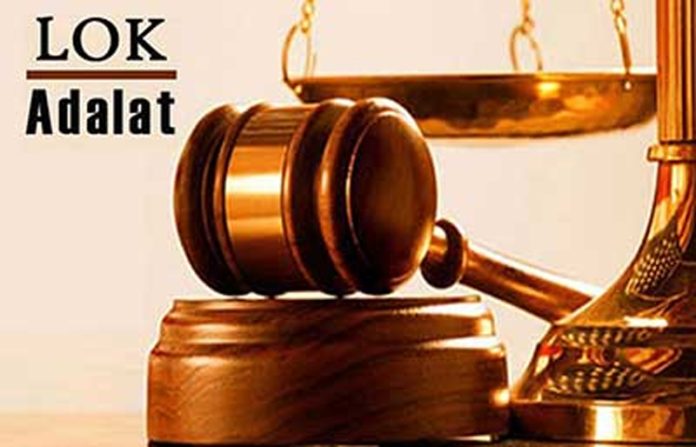‘Executing court cannot enlarge scope of basic order’
Mohinder Verma
JAMMU, Oct 18: Every award of Lok Adalat is deemed to be a decree of the Civil Court and cannot be reversed or set-aside without there being any allegation of fraud. Moreover, such an award is binding on all the parties to the dispute and no appeal shall lie to any court against such award.
This has been held by bench of Justice Wasim Sadiq Nargal while dismissing writ petition whereby challenge was thrown to the order passed by the Lok Adalat held at Baramulla directing the respondents (Public Works Department) to release the outstanding payment of Rs 3 lakh to the petitioner within a period of three months on the basis of alleged admission made by the then Executive Engineer Uri.
Through the writ petition challenge was also thrown to the order passed by District and Sessions Judge Baramulla which enlarged the scope of basic order/decree passed by the Lok Adalat by entertaining the execution petition for recovery of Rs 10 lakh from the judgment-debtor instead of the balance amount of Rs 3 lakh which was recoverable and payable to the petitioner.
After hearing counsels for both the sides, Justice Wasim Sadiq Nargal observed, “the order passed by Lok Adalat amounts to compromise decree, which by no stretch of imagination could be challenged by way of preferring appeal”, adding “every award of Lok Adalat is deemed to be a decree of the Civil Court as provided under Section 21 of the Legal Services Authority Act, 1987”.
“Section 21 of the Legal Services Authorities Act, 1987 equates an award of the Lok Adalat to a decree of a Civil Court and imputes an element of finality to an award of compromise passed by the Lok Adalat”, High Court said, adding “when the Lok Adalat disposes cases in terms of a compromise arrived at between the parties to a suit, after following principles of equity and natural justice, every such award of the Lok Adalat shall be deemed to be a decree of a Civil Court and such decree shall be final and binding upon the parties”.
“Given the element of finality attached to an award of the Lok Adalat, it also follows that no appeal would lie, under Section 96 of the CPC against such award”, Justice Nargal said, adding “writ petition would be maintainable against an award of the Lok Adalat, especially when such writ petition has been filed alleging fraud in the manner of obtaining the award of compromise. The writ court cannot, in a casual manner, de hors any reasoning, set aside the order of the Lok Adalat as the award of Lok Adalat cannot be reversed or set aside without setting aside the facts recorded in such award as being fraudulent arrived at”.
Stating that reason is the soul of the law and when the reason of any particular law ceases so does the law itself, High Court said, “no such allegation of fraud has been pleaded and on the other hand, a categoric statement has been made by the deceased that he will not charge any interest and, thus, the respondents in the instant petition are bound by the statement and the appellants, as such, are under a legal obligation to pay the admitted liability to the tune of Rs 3 lakh.”
Pointing towards the order passed by the Executing Court, Justice Nargal said, “it is manifestly clear that the Executing Court has gone beyond what was recorded by the Lok Adalat in the compromise-decree, whereby the petitioner, in unambiguous terms, has declined to charge any interest on the balance amount”, adding “the Executing Court, vide order impugned, has enlarged the scope of basic order by entertaining the execution petition for the recovery of Rs 10 lakh which includes interest.”
“The Executing Court by no stretch of imagination could have entertained the execution petition in the light of the specific statement by the petitioner, whereby, the deceased has declined to charge any interest on the amount and thus, the order passed by the Executing Court was beyond what has already been ordered by way of compromise decree by both the parties”, High Court said.
Accordingly, High Court dismissed the writ petition and upheld the order passed by the Lok Adalat. Moreover, High Court directed the petitioners (department) to release the outstanding payment of Rs 3 lakh in favour of the respondents within the period of one month. High Court has made it clear that in case payment is not made within the specified period, the petitioners shall pay interest at the rate of 6% per annum with effect from 09.05.2015.


